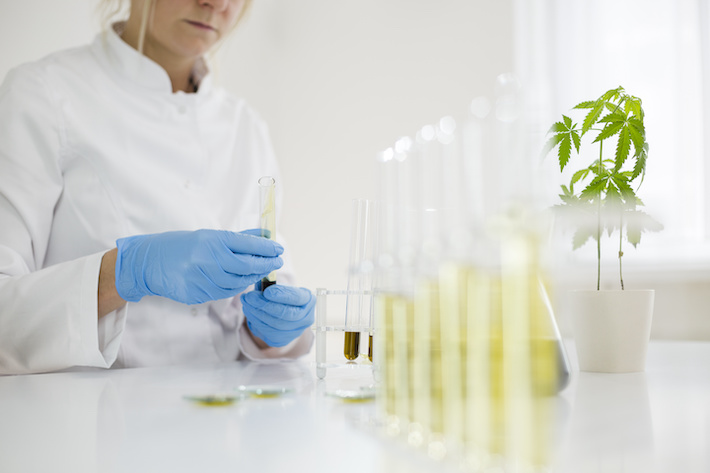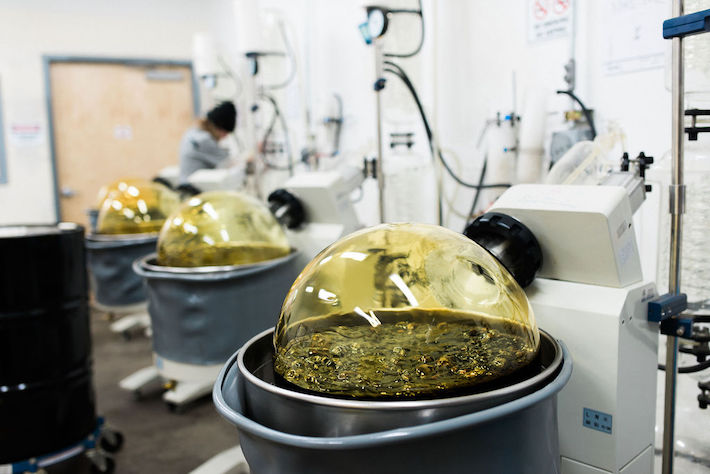
The Ultimate Checklist for Buying the Best CBD Products
The Ultimate Checklist for Buying the Best CBD Products
- There’s no one way to detect shady CBD companies — it usually comes down to a combination of several shady things before determining the brand is, indeed, shady as hell (check out some examples below!)
- Five main things to consider when purchasing CBD products — credibility, safety, effectiveness, taste/flavor, and price
- Make sure you read through the entire checklist before purchasing CBD products, especially if you’re a newbie — some of the points aren’t quite as obvious as you might think
- The important things to remember are third-party testing, hemp source location, extraction method, and extract type
Searching for a new cannabidiol (CBD) company and don’t know where to look? Found a CBD product you like but aren’t sure if it’s good quality? Worried about spending your hard-earned cash on scam products? The CBD industry can be a scary place, especially if you’re a newbie, which is why we’ve created this comprehensive CBD purchasing guide.
The five things to consider when choosing a CBD company
1. Credibility
CBD company credibility is built through a strong customer following, excellent reviews, great customer service, fantastic products, and uncompromised business integrity. No “free trial” scams, no outlandish health claims, no cut corners, and certainly no products carrying harmful ingredients.
One of the best ways to gauge a CBD company’s credibility is through impartial online forums and message boards. Reddit is a perfect example. There are several subreddits dedicated to CBD, CBD companies, and CBD products.
The r/CBD subreddit is a goldmine. Lots of really useful resources for beginner and newbie CBD users. Simply head on over to the subreddit, find the “review” tag, and discover reviews properly vetted and verified by official moderators and experts.
2. Safety
CBD companies adhering to robust safety practices should always exist in the CBD industry. Without a high level of safety, a company shouldn’t be selling CBD products. To be honest, no one wants to be consuming something hazardous or contaminated. Your health and overall wellness depend on it.
For you to know whether or not a CBD product is fit for consumption, you should be on the lookout for third-party lab testing and COAs.
3. Effectiveness
Let’s face it, you purchase CBD products for the effects and benefits, not for the hell of it. It’s, therefore, worth considering which product suits you best. Some products are better for anxiety and its associated symptoms, while others are designed for muscle pain, inflammation, and soreness.
CBD oils, for example, are generally effective for mild to moderate mental health issues. A 1,000-1,500 mg full-spectrum CBD oil product with additional anxiety-busting ingredients such as orange blossom or chamomile is ideal here.
Likewise, a CBD muscle-soothing balm or salve with menthol and peppermint added in is a perfect choice for muscle pain and inflammation, especially after a long day at work.
Quick Tip
If you’re a beginner, don’t buy the strongest CBD product you can find. Start low, go slow. Try a 500 mg full-spectrum CBD oil, topical, or edible to start with.
4. Taste and flavor
Everyone has different preferences when it comes to taste and flavor. We imagine some out there enjoy the sweeter, fruitier flavor of CBD gummies or candy, while others prefer the hempy taste of naturally-flavored CBD oils. No problem at all. Not all palettes are created equal.

However, what you certainly don’t want is a flavor you don’t like or different from what’s advertised on the website. Unfortunately, there’s no way to know a CBD product’s flavor without actually tasting it yourself. We recommend making sure you can return an opened product before you purchase. This way, you can exchange it for another flavor or get a refund.
Quick Tip
Naturally-flavored CBD products are exactly what they say on the tin. There are no additional flavorings. What you get is as close to the hemp plant as you can get, resulting in a bitter and weedy taste, which isn’t for everyone. Make sure to check through the product details carefully before purchase.
5. Price
The price of CBD products is confusing. We’re commonly taught lower prices equals lower quality. This isn’t always the case. There are many CBD companies out there selling CBD products at a lower price without skimping on quality. There are also CBD companies out there pricing products well into hundreds of dollars but lack the quality to back up the cost.
However, some CBD products can almost seem too good to be true. For example, if you see a 2,000 mg CBD oil for $20 or $0.01 per mg, it’s probably very low quality and the price is a reflection of this.
Likewise, if you see the same 2,000 mg CBD oil for $400 or $0.20 per mg, it’s way overpriced and likely not a trustworthy brand.
The checklist for purchasing CBD products (and why each of them matters)
1. Third-party testing: The ultimate CBD product magnifying glass
A Certificate of Analysis (COAs) is arguably the most important thing to look out for when purchasing CBD products. COAs are produced by accredited, third-party laboratories specializing in hemp and cannabis testing. They give you a detailed insight into the products you purchase e.g. cannabinoid profile, terpene profile, and the presence of contaminants (mycotoxins, heavy metals, residual solvents). CBD companies typically post COAs on their website for your reference. They can usually be found on the product page or a dedicated “COA/Test Results” page.
If your chosen CBD company hasn’t posted COAs, don’t immediately think the products are a scam. We recommend contacting the company’s customer service team and requesting the specific COA for the product(s) you want to purchase. All legitimate CBD companies will be happy to oblige.
What you find on a COA
- Cannabinoid Profile — The number and percentage of cannabinoids present in the product. Common cannabinoids include CBD, THC, cannabinol (CBN), and cannabigerol (CBG).
- Terpene Profile — The number and percentage of terpenes in the product. Common terpenes include caryophyllene, limonene, and pinene.
- Mycotoxin Testing — Shows the presence of any naturally occurring mycotoxins such as mold, fungi, and other bacteria.
- Residual Solvent Testing — Shows the presence of any residual solvents and/or organic volatile compounds.
- Heavy Metals Testing — Shows the presence of any heavy metals such as lead, mercury, arsenic, and cadmium.
Credible cannabis and CBD testing laboratories
Here are some of the most reputable and trusted cannabis testing labs. If you find a CBD brand that uses these labs to test its products, you can feel safe knowing the lab results are likely accurate and not falsified.

- Botanacor Laboratories
- ProVerde Laboratories
- SC Labs
- CannaSafe
- InfiniteCAL
- ACS Lab
- Anresco Labs
2. Correct labeling: Making sure you’re choosing the right product
When you’re purchasing your CBD product, take a very close look at the label. Do you see the company name, container volume (mL), CBD content (mg or %), extract type, and ingredients? If so, that’s a good sign. Each of these indicates the product is as it should be, at least from the outside.
If some (or none) of this labeling text appears on the CBD product, especially the CBD content and ingredients list, you have a problem.
What if you don’t see the amount of CBD written on the label?
If you don’t see the quantity of CBD written on the label, you might be looking at a “hempseed” product and not a hemp-derived CBD product.
Hempseed products are made from the seeds of hemp. They carry no Cannabidiol (CBD), have very few therapeutic benefits, and won’t help alleviate your ailments. Hempseed products are good for skincare or as a cooking ingredient but not for pain or anxiety.
What if you don’t see an ingredients list written on the label?
By law, CBD products require an ingredients list with allergens highlighted in bold. If you don’t see the list of ingredients on the CBD product label, we recommend you stay away from it.
4. Extract type: Experiencing the best of the hemp plant
There are three hemp CBD extract types for you to choose from:
- Full-spectrum — Contains a full range of cannabinoids, terpenes, flavonoids, and other plant compounds including THC.
- Broad-spectrum — Contains a broad range of cannabinoids, terpenes, flavonoids, and other plant compounds minus THC.
- Isolate — Only contains CBD.
While broad-spectrum and isolates serve their purpose, full-spectrum extracts are arguably the superior choice. Why? Because you get to experience the full range of cannabinoids, terpenes, and other beneficial plant compounds including THC.
When you use or consume CBD products carrying full-spectrum extracts, a physiological phenomenon called the entourage effect is thought to occur inside your body. Put simply, the entourage effect is the synergy between certain cannabinoids and terpenes. Scientists believe this synergy provides you with enhanced benefits, though this is still being debated.
5. Extraction method: CO2 and whole plant extraction preferred
The extraction method refers to how CBD producers extract plant compounds from the hemp plant.
There are several different extraction methods, but carbon dioxide (CO2) is the preferred choice among many CBD companies and users. Why is it the preferred choice? Because it’s safe, solventless, environmentally friendly, and retains a high percentage of beneficial aromatic terpenes.

Want to go one better? We recommend companies that use whole plant CO2 extraction. What does this mean? Whole plant is what it says on the tin. Manufacturers utilize the whole hemp plant, as opposed to just the flower, resulting in a powerful and therapeutic plant compound-rich extract.
6. White-label vs private label vs in-house
It’s rare for CBD brands to own and operate their facilities ready to create the perfect CBD products. The costs are way too high and the investment can reach millions of dollars. Instead, brands source their products from third-party white-label or private label manufacturers. One is ultimately better than the other but at a cost.
White-label CBD products are mass-produced and aren’t customizable. The brand simply puts its name on the label and that’s it. They have no say in the ingredients used or what the overall packaging looks like. On the other hand, private label CBD products are also mass-produced, but brands can customize the packaging and ingredients used.
When choosing a CBD company, it’s difficult to know whether or not it uses white label or private label manufacturers.
7. Member of any hemp or CBD organizations?
Due to a lack of federal regulations surrounding hemp and hemp-derived CBD, third-party organizations have stepped in to legitimize the industry via correspondence with federal agencies, advancing scientific research, providing education, and ensuring some level of independent regulatory oversight.
Common hemp and CBD organizations CBD companies join
- National Hemp Association (NHA)
- Hemp Industries Association (NIA)
- U.S. Hemp Roundtable
When choosing a CBD company, it’s worth considering whether it’s a member of any of these hemp and CBD organizations. Membership shows commitment and dedication to safety, transparency, and integrity within the cannabis and CBD industries.

























